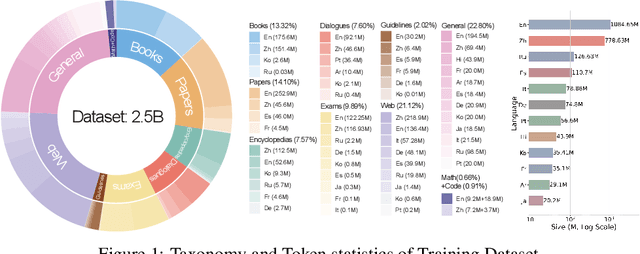Guorui Zheng
Efficiently Democratizing Medical LLMs for 50 Languages via a Mixture of Language Family Experts
Oct 14, 2024



Abstract:Adapting medical Large Language Models to local languages can reduce barriers to accessing healthcare services, but data scarcity remains a significant challenge, particularly for low-resource languages. To address this, we first construct a high-quality medical dataset and conduct analysis to ensure its quality. In order to leverage the generalization capability of multilingual LLMs to efficiently scale to more resource-constrained languages, we explore the internal information flow of LLMs from a multilingual perspective using Mixture of Experts (MoE) modularity. Technically, we propose a novel MoE routing method that employs language-specific experts and cross-lingual routing. Inspired by circuit theory, our routing analysis revealed a Spread Out in the End information flow mechanism: while earlier layers concentrate cross-lingual information flow, the later layers exhibit language-specific divergence. This insight directly led to the development of the Post-MoE architecture, which applies sparse routing only in the later layers while maintaining dense others. Experimental results demonstrate that this approach enhances the generalization of multilingual models to other languages while preserving interpretability. Finally, to efficiently scale the model to 50 languages, we introduce the concept of language family experts, drawing on linguistic priors, which enables scaling the number of languages without adding additional parameters.
 Add to Chrome
Add to Chrome Add to Firefox
Add to Firefox Add to Edge
Add to Edge